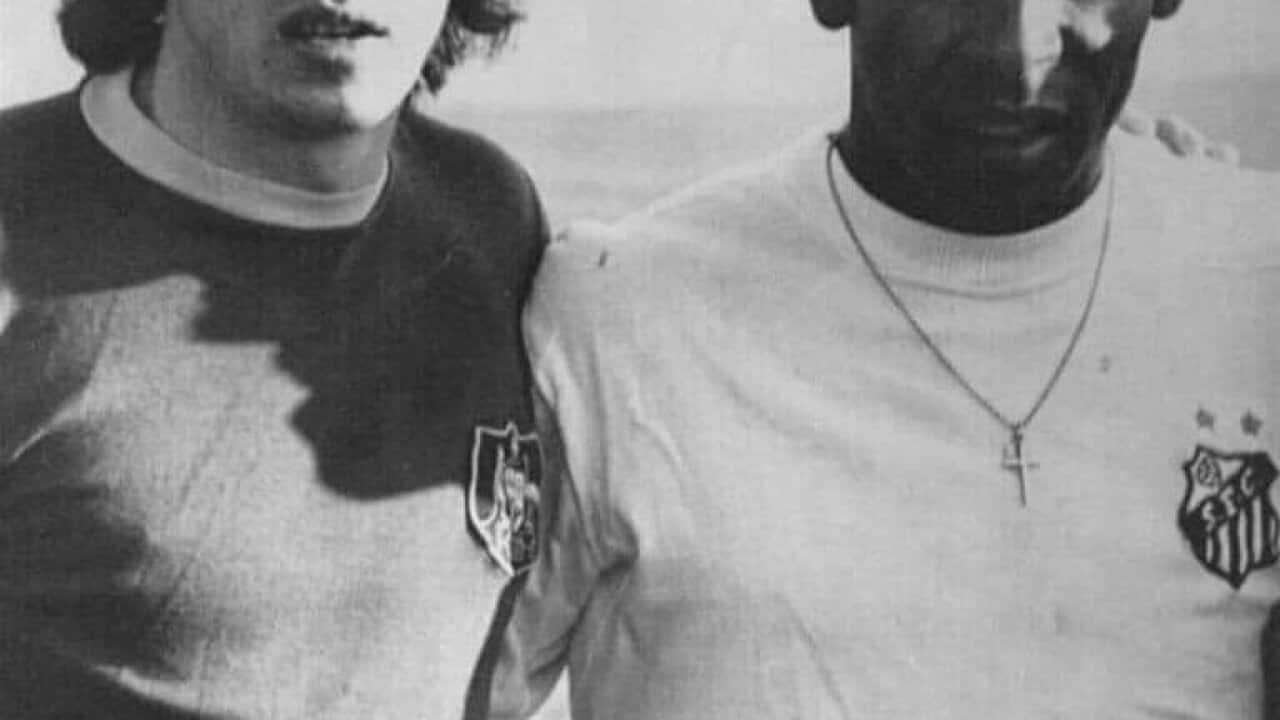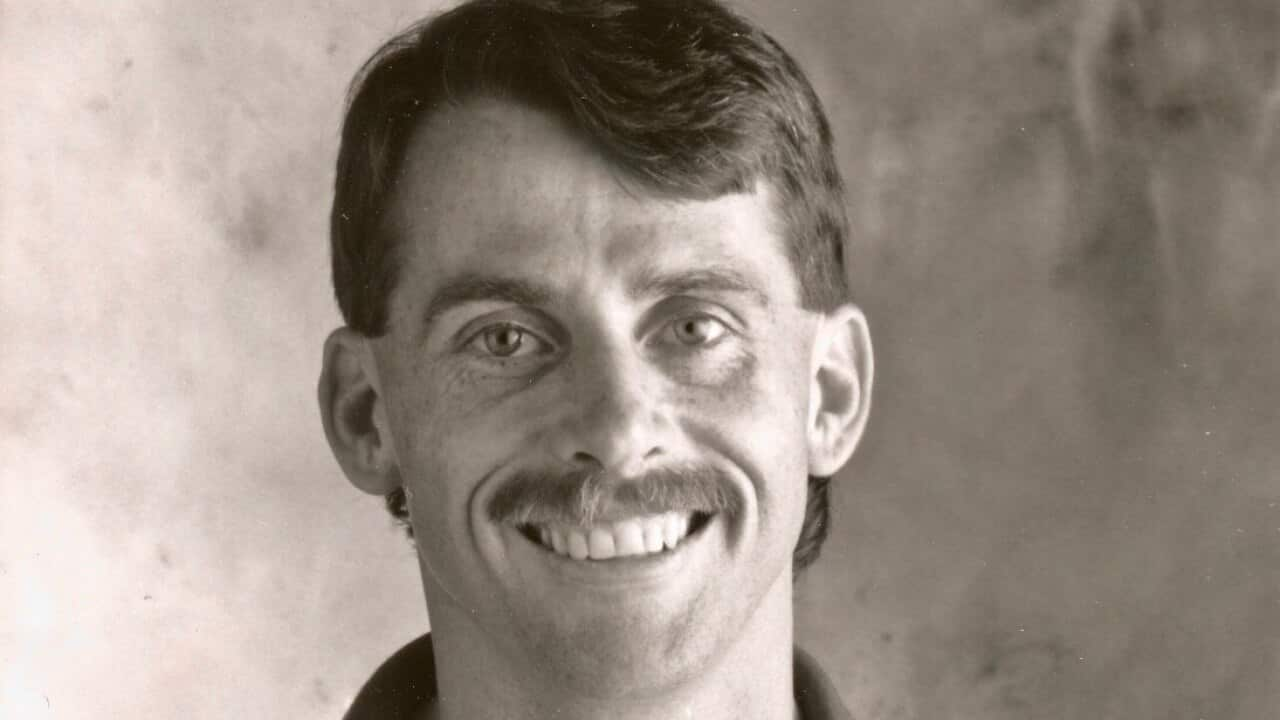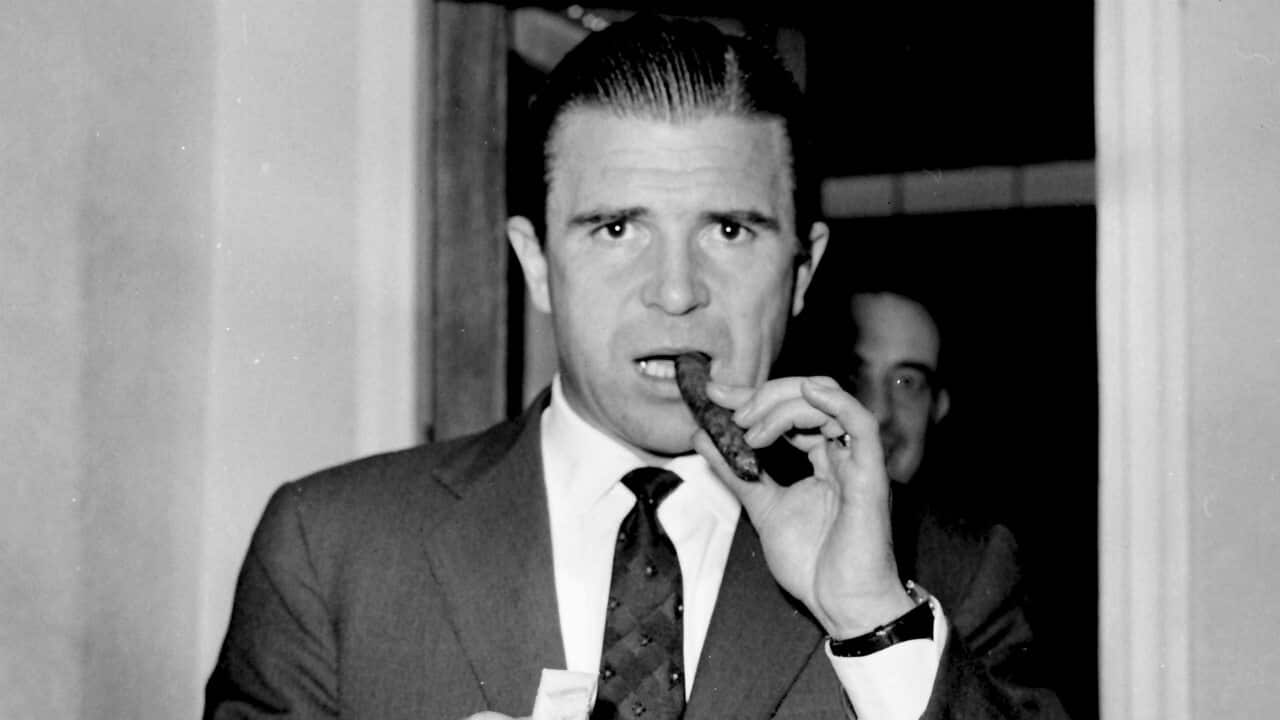Australia's 1974 World Cup forward Atti Abonyi is convinced the true spirit of the Socceroos was born in the heart of south-east Asia in 1967 when the national team was sent to play in a tournament in Saigon (now Ho Chi Minh City) at the height of the Vietnam War.
The National Day Tournament was an invitational eight-team event between anti-communist countries.
Abonyi formed part of the Australian team in his first tour abroad. He was a free-scoring inside right forward, a role which in today's terms would be close to an attacking midfielder.
The 'Friendship Cup', as it became known in Australia, was an experience he will never forget.
Not so much because the Australians defied all the odds to win the whole thing but because he believes that the character and camaraderie shown by the whole squad in trying circumstances laid the foundations for a special feature of the national team's culture: a fighting, never-say-die mentality that would serve the Socceroos in good stead for years to come.
"I had made my debut against Scotland in a B international in mid-1967 and Vietnam later in the year was my first tour abroad. Straight after the Australian Cup final we headed off to south-east Asia and we were bang in the middle of the Vietnam War," Abonyi recalled.
"The conditions were terrible but we stuck it out and went on to win the tournament with a 3-2 win over South Korea in the final. It was an incredible achievement.
"We were away for a month and we played New Zealand, South Vietnam, Singapore and Malaysia to reach the final. I could talk to you for days about that trip, stories you would not believe.
"For example, at first we used to be taken to a terrible dirt patch for training and our coach Joe Vlasits wouldn't accept that. So what he did was organise our training sessions (mostly gymnastics) on the roof of our seven-storey Golden Building Hotel.
"On another occasion we were training on a pitch that had a fence at the perimeter. It had only one goal and, you know, when you do shooting practice some of the balls end up over the top. After we 'lost' a few balls one of our players climbed the fence to retrieve them but all of a sudden people came out of nowhere to warn us off the other side of the fence. The reason: the area was full of land mines.
"Those were the sort of conditions we had to face in Vietnam. It was a very young, inexperienced team and only Johnny Warren and John Watkiss survived from the one that had fallen to North Korea in the qualifiers for the 1966 World Cup.
"We pulled together as one and showed incredible camaraderie to prevail against all the odds. It is fair to say that the true fighting spirit of the Socceroos was born during that month away in Vietnam.
"We were playing football while a war was raging around us. We could hear all sorts of things going off during training or while we were playing. I was lucky enough to be a Socceroos player for 11 years but that particular team had the best spirit I ever saw by a long shot."
Abonyi, who is now 71, spoke at length about his love affair with the game that was embedded in the streets of Budapest and that blossomed into a remarkable career that took him to the World Cup.
Where do you live and how do you spend your days?
"I'm retired and I've been living in Coffs Harbour for 28 years. I had been working all my life so now I just enjoy doing whatever I want to do or, better still, do nothing."
You came to Australia in 1957 as a 10-year old. What do you remember of your long trip from Hungary?
"We left Budapest in December 1956 after the revolution and spent some time in Austria until we got our papers ready for our boat trip to Australia from Germany. It was a long journey, five or six weeks I think. The Suez Canal was closed at the time so we had to go around South Africa. We arrived in Australia in May 1957."
Was it hard for you to 'assimilate' at school in Melbourne?
"It was difficult at first because we did not know a word of English. But as a 10-year-old you had no major problems, no fears. In time we picked up the language and to be honest it did not take that long."
Did you have any football heroes when you were growing up?
"Growing up in Hungary we all admired the great Magyar team of the mid-1950s and of course Ferenc Puskas was my hero. He was everybody's favourite. He was to Hungarian football what Pele was to Brazil and Diego Maradona to Argentina."
When did you realise that you had some special footballing skills?
"Every kid in Hungary had dreams of becoming a professional but we could not play competitively until we were 10 or 12. Of course, every spare time was used to play in the streets and in the local park. We used every opportunity to kick a ball around. That was when I developed a passion for the game and from that point I kicked on, I suppose."
You played one half against West Germany and a whole match against Chile at the 1974 World Cup. Which are your fondest memories of that tournament?
"You know, let's face it. It was the World Cup and nobody in Australia ever dreamed of playing in such a huge event. To be there when it was a 16-team event was remarkable. A lot of famous football nations did not qualify. England did not make it and neither did Hungary. So you had to be there to actually believe it. It's something you cannot describe."
What was your occupation in the late 1960s and early 1970s and was your job affected by being away for so much time?
"I lost about four jobs to be able to follow my dream of playing for Australia. My first job after finishing school in Melbourne was that of a tailor. But when I came back from Vietnam my boss, who was a fantastic guy, said to me: 'look, as much as I am really happy for you to keep playing for Australia I cannot have you travelling because I need you at work'. It was an awkward position to be in but I had to leave the job."
Were you surprised that football did not kick on from the Socceroos' exploits in the first half of the 70s?
"Very much so, Although we did not win a game at the World Cup we managed a draw with Chile and our defeats against the two Germanys were no embarrassment. After that we all thought the game would pick up but it did not happen. Basically, a lot of politics was halting the game's progress."
You also took part in the campaign for the following World Cup. What went wrong there?
"Coach Jimmy Shoulder, basically. I was part of three World Cup campaigns and our qualifying path for 1978 was by far the easiest we had had. We should have walked into the World Cup but Shoulder, who was only 29, had no idea about managing a football team. Nobody had heard of him and he never had a coaching job. He hardly did anything right. If I recall well, Warren and Rale Rasic applied for the job. Had either of them got it we would have qualified, no problem."
At that point in 1977 you bowed out of the international scene. Any regrets?
"I was lucky to be a Socceroos regular for 11 years, playing in 61 full internationals, but after our last 1978 World Cup qualifier in Iran I thought it was time for me to quit. My only regret is I was not allowed to make a token appearance - 10 minutes would have been enough - in the following year's three internationals against Greece in Australia in order to be able to say goodbye to the fans. The hurt for a while."
You dabbled with coaching. Does coaching require special qualities?
"Look, I have spent 10 years coaching different teams but to be honest it is not the same. The passion is not there after you stop playing because there is nothing like playing the game.
"It can be frustrating and nerve-wracking in lots of ways so I did not find it nearly as enjoyable as playing."
You played under several coaches. Who was the best?
"I'd say Frank Arok, who was my coach at St George Budapest. He was a great tactician and very strong on discipline."
How does today's game compare with that of your days?
"This is awkward for me to answer because I do not wish to sound negative. All I will say is that it is hard to compare the two eras because we've gone form part-time to full-time. Players today are paid well and can make living out of the game."
The Socceroos are struggling to reach next year's World Cup. Will they make it?
"I hope they make it, like everybody else. We don't know much about Syria and if we get through that tie we will probably have to face Honduras or Panama. How much do we know about them?
"To be perfectly honest with you I think we should have qualified directly quite comfortably but we stuffed up in the two games against Thailand, who are one of the poorest teams I have ever seen. We hardly deserved a draw in Bangkok and could only beat them by one goal in Melbourne."
Who are the best players you have played with and against?
"I was lucky to play alongside Warren and Doug Utjesenovic, with whom I had a good partnership at St George and with the Socceroos.
"I was privileged to play against such greats as Pele, George Best, Bobby Charlton, Franz Beckenbauer, Gerd Muller and Wolfgang Overath, who was my favourite German player."
And finally, who are the Australian and foreign players you admire most at the moment?
"I really do not enjoy football all that much these days because there is a lack of directness in the game. We see teams passing the ball for ever without even attempting to go forward most of the time. The game in my eyes has become negative.
"But to answer your question, on the foreign front I cannot go past Lionel Messi, Neymar and Cristiano Ronaldo. But there is not much else. It's not like the old days when you had two dozen superstars.
"Locally I don't want to be rude but I cannot single out anyone mainly because if today's players are fitter and stronger, their technical ability is rather limited."
ATTI ABONYI FACTFILE
Club career:
1962-1968: Melbourne Hungaria
1969-1976: St George
1977-1979: Sydney Croatia
1980: Melita Eagles
International career:
1967-1977: Australia (61 matches)













